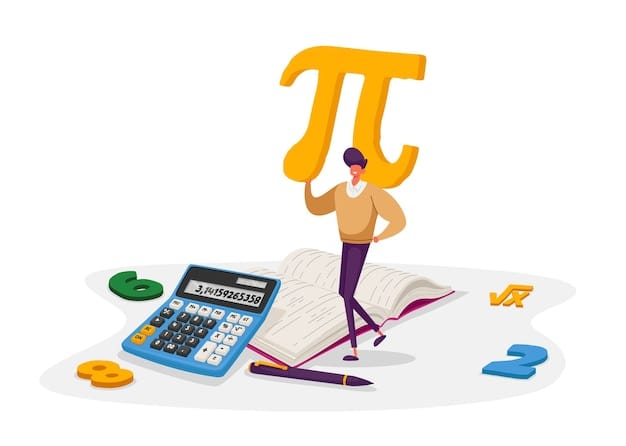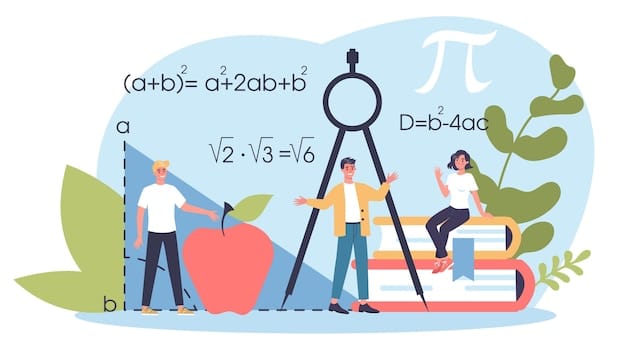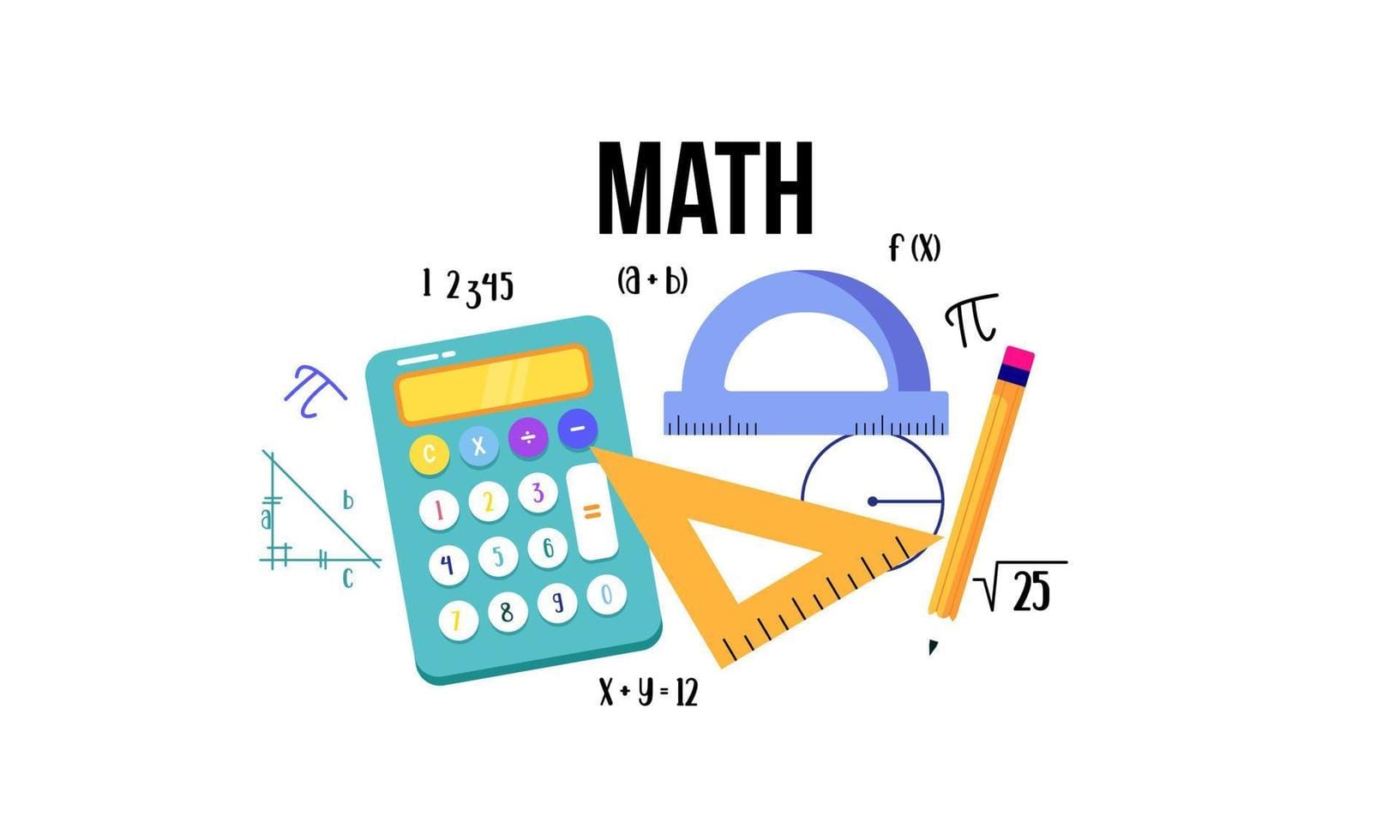Online Math Classes That Make Numbers Feel Less Scary
Online Math Classes That Make Numbers Feel Less Scary

Math is often unfairly conceived as difficult or frightening. Math anxiety is a problem that is experienced by many children at a tender age and it may influence their self-confidence and academic development. Once numbers begin to overwhelm them, children might develop the impression that math does not suit them and thus get frustrated and lose interest in the subject. Unless the approach to introducing and teaching math is changed, this vicious cycle may take several years to break.
There is where the strength of online learning comes in. Compared to the normal classroom setting, online math classes tend to employ interactive tools, interesting visuals, and personalized instructive strategies in order to simplify the learning process. Learners are also able to learn at their pace, ask questions without feeling embarrassed in a crowded classroom and gain confidence step by step, instead of memorizing formulas or feeling put under pressure. The digital type can also be utilized to develop creative problem solving activities that turn math less into fear and more of a curious learning experience.
But through proper strategy, online math lessons can change how children perceive numbers- making math enjoyable to students, lessening stress, and making learning process enjoyable. As a combination of technology and supportive instructional methods, such classes demonstrate children that math is not something to be afraid of, but an ability to learn about, have fun with, and apply in real life. With time, such a good change not only raises grades, but also enables the students gain problem-solving skills and lifelong passion to learn.
Introduction to Making Math Fun for Students

Children are able to learn best when the lessons are interactive. To make math fun among the students, there is a need to substitute fear with curiosity and frustration with discovery. By making learning a game, children tend to remain motivated, ask questions and become part of the learning process as opposed to shunning the topic.
Creative ways of making students remain active on online math platforms are now diverse. Puzzles and quizzes can be used to play with the interactive games and virtual whiteboards which will help children envision concepts instead of memorizing them.
Drawing a link between math and the real world that surrounds the students can start with shopping, cooking, or sports, which allows the students to understand that numbers are not only classroom activities, but they can be used in the real world, as well.
Above all, this strategy assists in creating confidence. When the small wins are achieved by means of fun and bite-sized lessons, students understand that math is not as scary as it used to be. With time, such an attitude change decreases anxiety, promotes curiosity and creates a positive attitude towards problem-solving- turning math into a topic that children can actually enjoy.
How Learning Math Online Helps Build Confidence

Studying math online gives the kids time to study at a pace that fits them, repeat any lesson repeatedly, and practice through playing. In contrast to a classic classroom setting when some kids can feel excluded, online sites allow children to study at their own pace. The flexibility allows them to concentrate on actual understanding of every concept and this forms a good base into the next topic.
These positive learning experiences eventually overtime subdue fear with confidence. Watching the progress of their own lives, children start believing in their possibilities and liking finding solutions. Not only does this aid them in doing better in school but it also develops problem-solving skills and strength that cannot be narrowly limited to math-skills but instead can be used in their daily lives.
Proven Methods for Reducing Math Anxiety in Kids

Fear of failure or the need to match peers is often the cause of math anxiety. Online classes solve this through strategies that help make learning less of a burden and more of an adventure. Through the establishment of a supportive and interactive atmosphere, such programs allow children to slowly change their attitude of I can not do this to I can figure this out.
Gamification – Fear of failure or the need to match peers is often the cause of math anxiety. Online classes solve this through strategies that help make learning less of a burden and more of an adventure. Through the establishment of a supportive and interactive atmosphere, such programs allow children to slowly change their attitude of I can not do this to I can figure this out.
Visual learning tools – In conjunction with that, abstract concepts are then presented as visual learning aid, or diagrams, animation, and digital manipulatives, and become more tangible and accessible to learn.
Step-by-step guidance and Positive reinforcement – Step-by step guidance and positive reinforcement are equally important. The ability to break down lessons into easy, digestible segments will mean that children develop knowledge slowly, and progress rather than concentrate on what they do wrong will foster confidence.
These approaches combined allow demonstrating children that mathematics is not as difficult as it may seem and, as a result, enables them to gain both superior abilities and a more positive and healthy attitude towards numbers.
Features to Look for in Online Math Classes That Make Math Fun for Students

Not every online math class is equal and the correct features can significantly change the way children learn the subject. Parents ought to seek out those programs that are not lectures and worksheets, but those that involve engaging and interactive learning. It is not just to learn math but to become curious and have fun.
Interactive games and activities - To make mathematics an active and fun activity, the most effective programs involve puzzles, challenges, and digital games. This maintains the interests of the kids as well as they train their abilities in a stress free manner.
Personalized learning paths - All children do not learn the same way and adaptive programs will change speed and level of difficulty according to the needs of the student. This will provide a gradual progress without frustrations or boredom.
Real-world problem applications - Those lessons that relate math to the real world make children understand why it is important. Cooking, shopping, sports, no matter what one uses math in practical life, numbers become more familiar and more relevant.
Supportive mentors or instructors - Every great program has behind it a teacher or coach who guides, encourages and celebrates the progress. A friendly mentor will assist the children to get through the hardships, gain confidence and develop a positive attitude towards math.
How Parents Can Support Kids Learning Math Online

When children are learning math online, parents make a significant contribution to the success. Online resources are a tool and structure, but parental support and engagement are a long-term change in the approach of children to the subject.
Provide a positive learning environment at home- This is a setting where the children learn significantly influences their attention and performance. An insulated, relaxing, and bright environment with non-interrupted distractions makes children focus on online math lessons. Creating a special study area is also an indication to the child that this is his/her learning area and she/he can easily shift to a state of study.

Other than the physical environment, the emotional environment is equally essential. Parents can make it a positive atmosphere by being curious about what the child is studying, asking subtle questions and encouraging them. Feeling the support, children will be more ready to collaborate, solve new problems, and remain engaged in online lessons.
Praise small progress to foster confidence- It does not necessarily mean you will solve the most difficult equation, but it can begin with the small ones. When parents who celebrate these little achievements make children aware that progress is more important than perfection, they make a difference. Even a congratulatory word like Great job! or calling their effort can work wonders in confidence.

These festivals also develop strength. Children feel more ready to take the challenge of solving difficult problems without fear of failure when they feel proud of their achievements. With time, they learn through this positive reinforcement that challenges are learning opportunities and not something to evade.
Promote regular brief sessions of practice- The long study time makes the children feel overwhelmed and feel off-putting to think about math. Rather it is far more effective to have short, regular sessions. Only 15-20 minutes of practice per day will support the ideas and make learning fun and easy.

Discipline is also created by consistency. Math ceases to be an additional burden when it becomes a daily activity of a child and a habit. Such a consistency in rhythm allows kids to remember things more easily and handle unfamiliar ideas with confidence.
Do not pass on their own math-related anxiety onto the child -Most parents have the recollection of having had a hard time with math, and they will unwillingly transfer these negative emotions onto the child. When children observe parents being frustrated, nervous, or avoidant of math, then they may develop the same attitude.

Instead, parents can be good role models by expressing curiosity and patience even when math was not their strong subject in school. Parents who see errors as learning opportunities and take an interest in solving mathematical problems help kids realize that math is nothing to fear, instead, it is another skill that needs to be mastered step by step.
Parents can achieve this by encouraging the children emotionally and practically, which makes them excel in math. They make online learning not only a successful process, but a process that can be rewarding and enjoyable.
Conclusion: Making Math Lessons Enjoyable by Simplifying Math Problems and Math Concepts

Math doesn’t have to be scary. With the right tools and approach, even the most hesitant learners can begin to see numbers in a new light. Fun, interactive online classes take the pressure out of learning by turning complex ideas into engaging activities, helping children shift from anxiety to excitement.
With guidance from supportive parents and teachers, children can develop a lifelong love for problem-solving and critical thinking. By choosing the right programs and encouraging consistent practice, families can ensure math becomes less intimidating and more enjoyable, unlocking doors to future opportunities.
Learning Math Online - FAQs
How can making math fun for students reduce their anxiety about numbers?

Math fun is an alternative to fear. When children work with interactive games, puzzles or story-based problems, then they start to view math as something that is not frightening but enjoyable. This beneficial change reduces the stress levels and makes them more eager to give new challenges without fear.
These pleasant experiences are accumulated in a feeling of success over time. Children start to view math in a more confident way as they relate to positive feelings when solving problems. The more they enjoy the learning process the less they fear solving numbers in the future.
What are the benefits of learning math online for children struggling with anxiety?

Learning online offers flexibility which is usually not always the case in traditional classes. Children are able to stop, reread, and reread lessons as many times as they want, thereby lessening stress and enabling them to learn through their own learning pace. Such individual treatment makes them feel not neglected.
Also, such features as instant feedback, interactive practice tools, and progress tracking allow children to view their progress in real-time. When children realize that they are improving, it gives them confidence that they can master math and it eliminates fear and develops resilience.
How do online math classes make math easy for children who find it difficult?

Math is easier to digest when broken down into small digestible steps. Online classes tend to begin with simple stuff and proceed with more difficult matters rather than subjecting students to complicated formulas. This forms a stable learning process that is attainable.
An abstract idea is further simplified with the help of the visual aids and animation as well as the gamified lessons. Slices of pizza or shapes can be used as an example, since they are easy to learn as fractions since they can be touched and related to. It is the mix of sequential instructions and imaginative instruction that makes math not too difficult but I can do this.
Are there specific online math activities that help in reducing math anxiety in children?

Yes. Such activities as math puzzles, virtual manipulatives, interactive quizzes are created to make problem-solving interesting. These strategies make children train in a more playful mode without the pressures of examinations or strict grading.
It is added with gamification: points, badges, or unlocking the level. Children view math as something to have fun with and not as an obstacle to dread. The tools can decrease anxiety and increase self-confidence by making practice a fun game.
How soon can children see improvements in their math skills with fun online math classes?

The time frame of improvement is variable though within several weeks, most children start improving. First, the change can be in their attitude- children would be more willing to attempt math problems, less scared of making mistakes and more positive about their abilities.
Real academic improvements are seen within several months with the regularity of short practice sessions. The better the children develop a solid base and eliminate their fears, the better they become in math, and thus the long-term outcome is a success in math.
Comments
Your comment has been submitted